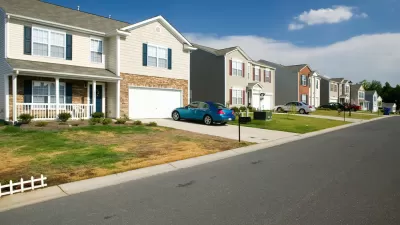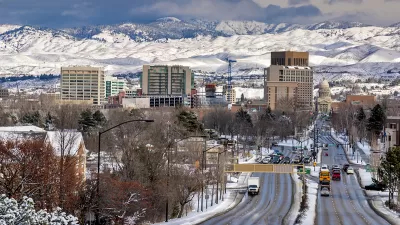It's hard to describe the current trends in the housing market as a "boom," though homebuying costs are surely rising.

"America has a record-low number of homes available for sale — just 1.03 million," writes Felix Salmon, citing data from the National Association of Realtors, to explain the roots of the current "housing boom."
Salmon's point throughout this article is that this housing boom isn't like previous booms: "It's a discouraging scene: Bidding wars, soaring prices, and fears that homeownership is becoming out of reach for millions of Americans. We're in a housing frenzy, driven by a massive shortage of inventory — and no one seems to be happy about it."
The numbers also agree: the 1.03 million homes available amount to only a fraction of the homes available for sale during the last housing boom in July 2007, when 4 million homes were for sale.
National Association of Realtors chief economist Lawrence Yun is quoted in the article saying this "is not a bubble. It is simply lack of supply."
There are other forces at work, however, Salmon lists "continued low mortgage rates, a pandemic-era construction slowdown, a desire for more space as people work increasingly from home, and a stock market driven increase in money available for downpayment" as causes of the rising cost of housing in the United States. There's also a rise of large corporate buyers in the market.
Salmon also offers a list of good news, losers, and a few potential outcomes for the "housing boom" of the pandemic.
FULL STORY: The dispiriting housing boom

Maui's Vacation Rental Debate Turns Ugly
Verbal attacks, misinformation campaigns and fistfights plague a high-stakes debate to convert thousands of vacation rentals into long-term housing.

Planetizen Federal Action Tracker
A weekly monitor of how Trump’s orders and actions are impacting planners and planning in America.

In Urban Planning, AI Prompting Could be the New Design Thinking
Creativity has long been key to great urban design. What if we see AI as our new creative partner?

King County Supportive Housing Program Offers Hope for Unhoused Residents
The county is taking a ‘Housing First’ approach that prioritizes getting people into housing, then offering wraparound supportive services.

Researchers Use AI to Get Clearer Picture of US Housing
Analysts are using artificial intelligence to supercharge their research by allowing them to comb through data faster. Though these AI tools can be error prone, they save time and housing researchers are optimistic about the future.

Making Shared Micromobility More Inclusive
Cities and shared mobility system operators can do more to include people with disabilities in planning and operations, per a new report.
Urban Design for Planners 1: Software Tools
This six-course series explores essential urban design concepts using open source software and equips planners with the tools they need to participate fully in the urban design process.
Planning for Universal Design
Learn the tools for implementing Universal Design in planning regulations.
planning NEXT
Appalachian Highlands Housing Partners
Mpact (founded as Rail~Volution)
City of Camden Redevelopment Agency
City of Astoria
City of Portland
City of Laramie





























